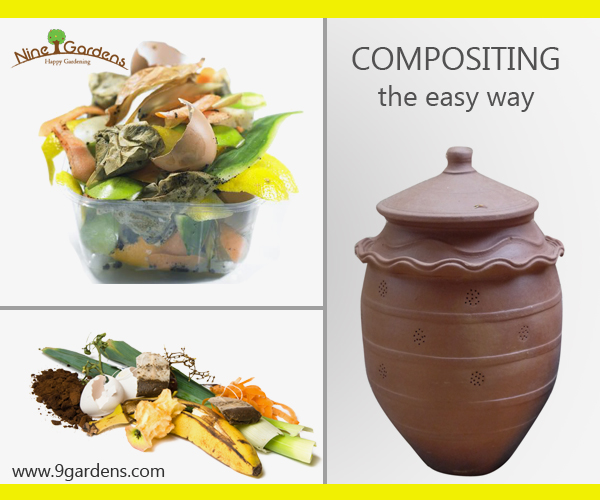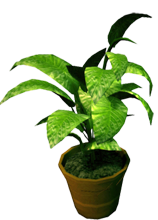Think twice before you term the eggs shells, fruit cores, food leftovers and vegetable scraps from your kitchen as "waste". Because that can be such a misnomer for the high quality soil amendments you seem to possess. The egg shells and vegetable scraps from your kitchen can be the best source of natural growth boosters for your plants. They seem to help improve the soil so that plants can make use of those nutrients which you add in the form of fertilizers.
Composting is a simple, natural process that transforms the food scraps into valuable soil amendments. Segregate your household wastes into Organic, Recyclable and Rejects. The organic wastes can be turned into rich composts which you can use for your gardens.

Having an ample supply of compost is any gardeners' dream. Composting can serve many benefits for your garden. Many call it "black gold" because of the purposes it serves. It not only improves the soil texture, structure, aeration but also increases its water retention capacity and nourishes your plants. It prevents chemicals to go into the soil and improves the soil structure significantly. You can do your bit to save the environment by composting, because it lowers your carbon footprint. However, composting can be time consuming. Composting can take as long as a year or as little as 90 days, depending upon the amount of human control.
Most yard wastes can be composted, including leaves, grass clippings, plant stalks, vines, weeds, twigs and branches. Compostable food wastes include fruit and vegetable scraps, coffee grounds, eggshells and nutshells.Avoid including meat, fish, poultry, dairy products, diseased plants and weeds with developed seed heads in your compost bins. These items may cause odors, attract pests, or create unwanted mess.
To start with, you need a composting bin which will serve the purpose of holding the organic waste till it is converted into compost. A good composting procedure ensures minimum odor and mess. Place shredded papers, dead leaves, old newspapers etc. at the bottom of the bin. Try not to put more than 6” of each material on a layer. You don’t want 24” of grass clippings in the bin, you should alternate layers of green and brown material. If necessary, keep a few bags of dry leaves around so you can alternate layers of brown waste and green waste.
Not adding equal amounts of dried leaves, sawdust or paper makes the pile too wet and smelly and attracts a lot of flies. You have to put leaves in the same volume as your kitchen waste when you begin composting and later on adjust it to suite the moisture levels in the pile. Adding neem dust or turmeric powder to the pile helps check the repulsive maggots.
Once the bin is full, the rules of composting say that you should turn the material in the bin every few weeks. Not stirring at least once in a week leads in the pile to become compacted, wet and slimy and therefore smelly.
Some customers are so scared about moisture that they let the pile go very dry. Let us tell you that this stops composting totally. The microorganisms need moisture to live on and work. So make sure that the pile is moist, not soggy-but moist. This keeps the material damp, and the moisture will cause the pile to compost easily.
Sure this process is a little work, but it sure is nice to have a place to get rid of organic waste any time you like. When you have finished compost ready to add to your potting soil, you will be grateful to have done the right thing earlier, and you'll know that you have wasted nothing.





















